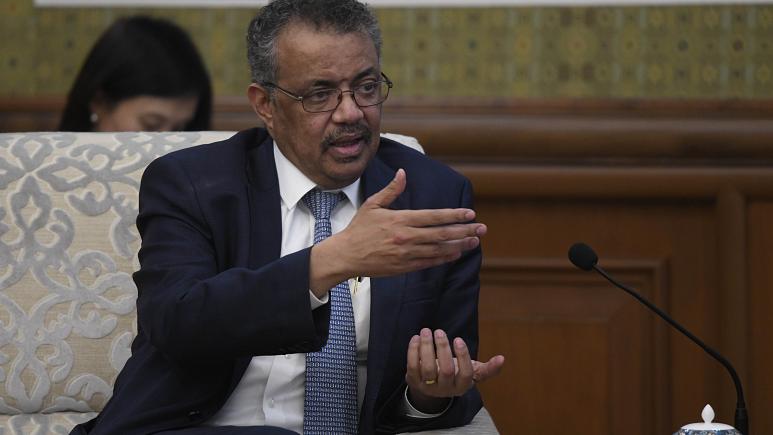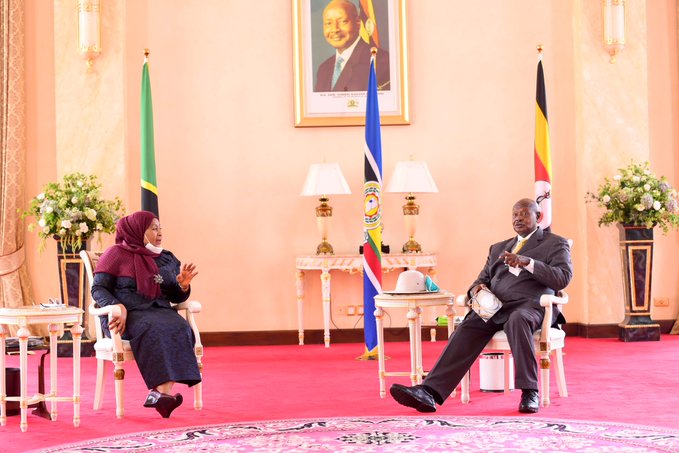A number of road projects are handled by foreign contractors
A section of lawmakers are insisting on having projects funded by taxpayers’ money and loans reserved for local companies despite protest by President Yoweri Museveni that such a provision is impractical because the international lenders tend to dictate the terms and conditions for the loans.
In his letter returning the bill for reconsideration to Parliament, President Museveni described as impractical Section 26 of the Bill which had the effect of imposing local content obligations on resources obtained internally and externally on grounds that each development partner has its own policies and guidelines which are negotiated prior to the commencement of the project.
While appearing before Parliament’s Finance Committee to defend the National Local Content Bill 2019, Patrick Nsamba (Kassanda North), he tabled a list of 36 road projects constructed on taxpayers’ money and loans and said all these contracts were gifted to foreign contractors.
Among the projects included the Shs1.725Trn Kampala-Entebbe Expressway loan from Exim Bank China, gifted to China Communications Construction Company, Hoima-Kaiso-Tonya Road using funds from Government at a cost of Shs360.605Bn and went to Turkish firm Kholin Construction Company as well as the Kanoni-Sembabule-Villa Maria Road at a price of Shs239.120Bn and given to China Railway Engineering Group.
Mukono-Kayunga-Njeru Road was constructed at Shs223.126Bn by an Israeli company SBI International Holding and the same contractor constructed Mukono-Kyetume, Katosi road at Shs253.940Bn and another Chinese firm was awarded a contract to construct Musita-Lumino-Busia at Shs206.784Bn.
Nsamba asked the Committee to reject the President’s recommendation to have this clause deleted arguing that such terms and conditions should be fronted by the Ugandan team during negotiations.
He said: “The President’s proposals on this matter should be rejected since implementation of such projects is preceded by negotiations. The provisions therefore guide negotiators to ensure that when negotiations for the implementation of donor funded projects, they should ensure that the listed matters are provided. The provision does not preclude the implementation of the funder’s policy and guidelines.”
Keefa Kiwanuka (Kiboga East) tasked Nsamba to explain how procurement standards set out by development partners like World Bank that can’t be varied or negotiated will abide by this provision.
Paul Omara (Otuke County) however proposed to have a special provision included in the legislation for World Bank, but the proposal was rejected by Muwanga Kivumbi (Butambala County) saying World Bank funding have been stringent on transparency, democracy, human rights, environmental protection but has never been against empowering of the people.
“The high priests of free market economy are Americans and they protect their own. It is all hypocrisy, those who buy into it simply don’t understand how the global market operates. And the African leadership elite simply have to embed and know how to beat that. And doing things of this nature is the best way to beat them, so the moment you leave your safe empty, for them they protect,” said Muwanga.
Nsamba while defending the bill argued that the Buy Uganda Build Uganda Policy which seeks to increase consumption and utilization of local products and increase participation of locally established firms in domestic trade hasn’t been fully operationalised due to lack of an enabling law, non existence of implementation modalities and lack of sanctions on non compliance.
Jane Avur (DWR Pakwach) wondered why focus shouldn’t be put on strengthening the Public Procurement and Disposal of Assets Act (PPDA) instead of making a local content bill that would put Uganda against the global economy for enacting a sectarian law.
Nsamba replied saying that he had also considered amending the PPDA Act, but the intention of the PPDA Act is mainly to promote competition and there is nothing affirmative in that law to support local companies.
“We wouldn’t have needed a law, actually Ethiopia doesn’t have a law on ensuring that their people are given first priority but within their system, it is a must. So because we don’t have a good practice that protects Ugandans, that is why we are introducing a law. Had it been it been our own practice, we wouldn’t have needed a law but because people are doing contrary, that is why we are coming up with a law,” said Nsamba.





